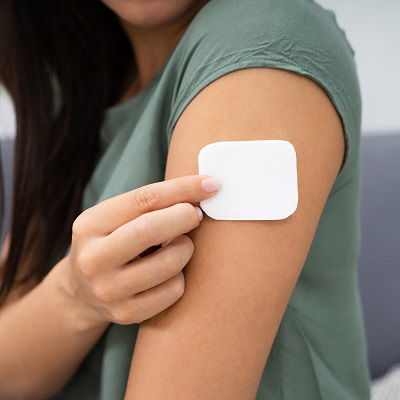Why Phytoestrogens Cannot Replace Hormone Replacement Therapy
Phytoestrogens are naturally occurring plant compounds that mimic the effects of estrogen in the body. Found in foods like soy, flaxseeds, and legumes, these compounds have been widely promoted as a natural alternative to hormone replacement therapy in Hormone Replacement Therapy Clinic in Oman. However, while they may offer mild estrogenic activity, they fall short of effectively replacing hormone therapy treatments for individuals facing severe hormonal imbalances.The rising interest in natural hormone therapy alternatives has led many to consider phytoestrogens as a potential solution for menopause symptoms, osteoporosis prevention, and other estrogen-deficient conditions. But do they really work the same way as hormone replacement therapy?

How Phytoestrogens Work in the Body
Phytoestrogens function by binding to estrogen receptors, but their effectiveness depends on various factors, including an individual's hormonal levels, metabolism, and the specific type of phytoestrogen consumed. These plant-based compounds exist in different forms, such as:
- Isoflavones (found in soy and red clover)
- Lignans (found in flaxseeds and whole grains)
- Coumestans (found in alfalfa and sprouts)
Despite their ability to bind to estrogen receptors, phytoestrogens are significantly weaker than the bioidentical hormones used in hormone replacement therapy in Oman, making them insufficient for treating moderate to severe estrogen deficiency.
The Limitations of Phytoestrogens Compared to Hormone Therapy
1. Weaker Estrogenic Activity
Phytoestrogens only have a fraction of the potency of synthetic or bioidentical estrogens used in hormone replacement therapy. This means that their impact on alleviating menopausal symptoms such as hot flashes, night sweats, and mood swings is minimal.
2. Inconsistent Effects Across Individuals
Unlike regulated hormone therapy treatments, the effectiveness of phytoestrogens varies based on gut microbiota, genetic factors, and existing estrogen levels. Some individuals metabolize phytoestrogens efficiently, while others may experience little to no effect.
3. Lack of Medical Supervision
Phytoestrogens are often consumed as dietary supplements without medical supervision. In contrast, hormone replacement therapy in Oman is tailored by professionals to ensure optimal hormone levels and minimize health risks.
4. Inadequate Bone Protection
Osteoporosis is a major concern for women experiencing estrogen decline. While some studies suggest phytoestrogens may contribute to bone health, they do not provide the same level of protection as hormone replacement therapy, which is clinically proven to maintain bone density and reduce fracture risks.
5. Limited Impact on Severe Menopausal Symptoms
For individuals with intense menopausal symptoms, phytoestrogens alone are not powerful enough to offer relief. Hormone replacement therapy in Oman provides a more effective and medically regulated approach to managing symptoms and improving overall well-being.
Why Hormone Replacement Therapy is a Better Option
HRT treatments involve supplementing the body with precise levels of estrogen, progesterone, or testosterone to restore balance and alleviate symptoms. Some key benefits include:
- Immediate and consistent relief from menopausal symptoms
- Improved bone health and reduced osteoporosis risk
- Enhanced mood, energy levels, and cognitive function
- Regulated hormone levels for long-term wellness
Unlike phytoestrogens, which provide unpredictable and often weak effects, hormone replacement therapy in Oman is a structured treatment plan that ensures long-term health benefits while being monitored by medical professionals.
Should You Use Phytoestrogens as a Supplement?
While phytoestrogens cannot fully replace hormone replacement therapy, they may still be used as a complementary dietary approach. Some women choose to incorporate phytoestrogen-rich foods into their diet for mild hormone support, but for those dealing with severe symptoms, medical intervention remains necessary.
Finding the Right Hormone Therapy Plan for You
If you’re experiencing hormonal imbalances, hormone replacement therapy in Oman offers the most reliable and clinically proven solution. Consulting with a medical professional ensures that you receive a personalized treatment plan suited to your body's needs. Unlike phytoestrogens, which may not deliver significant results, hormone therapy treatments provide targeted relief, helping you regain balance and improve your quality of life.
